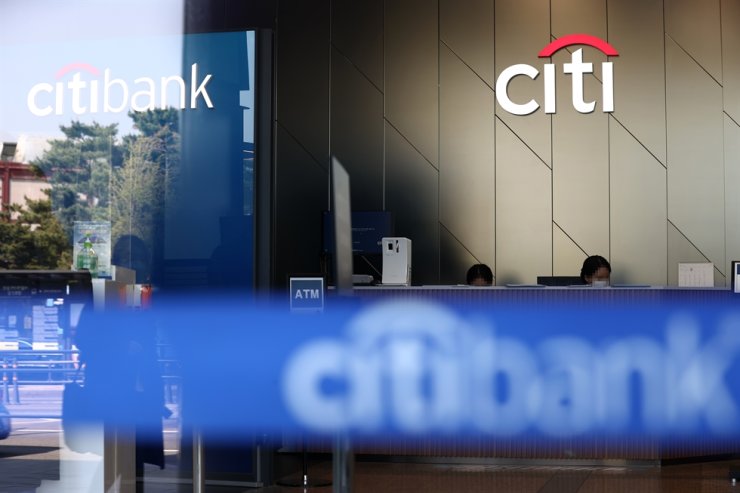Citi to shut Korea’s retail banking without sell-off
 |
| Citibank Korea’s main branch in Seoul is seen in this April file photo. Yonhap |
Details about divestment to be announced Monday
By Park Jae-hyuk
Citibank Korea’s management informed its board of directors Friday that attempts to unload the consumer banking unit here had failed, leaving the U.S. headquarters with no alternative but to shut the unit down without selling it, according to industry sources and media reports, Sunday.
The bank will announce the specifics about its exit plan through a statement to be issued Monday, after notifying its employees of the decision.
“We have yet to be informed of the result of Friday’s board meeting, because it finished several hours after it started at 5 p.m.,” a Citibank Korea spokesperson said.
The financial authorities are said to have already been notified of the bank’s decision to phase out its retail banking operation here without selling it to another financial firm.
Financial Services Commission (FSC) Chairman Koh Seung-beom said at a National Assembly audit Thursday that the commission would ascertain whether a phased liquidation of the bank’s consumer banking unit needed its approval.
“We will keep a close watch on this issue in terms of protecting financial consumers and maintaining financial order,” he said.
Over the past few months, Citibank Korea has talked with multiple firms, without ruling out the possibility of piecemeal sales of its credit card and wealth management businesses, both of which are considered relatively profitable.
Potential buyers have remained skeptical about ensuring that all employees of the bank could keep their jobs, citing salaries were relatively higher than those at other commercial bank workers here.
The Citibank Korea union has also refused to accept a management proposal to offer up to 700 million won ($594,000) each to workers who retire voluntarily.
“Citigroup should withdraw its careless liquidation plan,” the union said in a statement, Friday. “As it did when selling its Colombian operation in 2016, it should postpone the plan until the overall condition of the financial industry sees an improvement.”
If Citigroup exits consumer banking here without selling the unit, it is expected to follow the moves by HSBC, which dismissed more than 90 percent of workers at its Korean subsidiary and closed 10 out of 11 branches here, in the wake of its failure to find a buyer for its retail banking business.
Since Citigroup CEO Jane Fraser announced the bank’s planned exit from consumer banking in 13 countries in April, its Korean operation has not been viewed as attractive by global financial companies that are considering bidding for the group’s retail assets in other Asian countries.
Standard Chartered, DBS and Fubon Financial have been mentioned as bidders for Citigroup’s consumer banking operation in Taiwan, while DBS is also said to be trying to acquire the group’s Indonesian unit, according to Bloomberg. Bank of Ayudhya owned by Japan’s Mitsubishi UFJ Financial is reportedly attempting to take over the group’s operation in Thailand.
Citigroup’s retail assets in the Philippines and India have also attracted multiple local financial firms, according to the news agency.